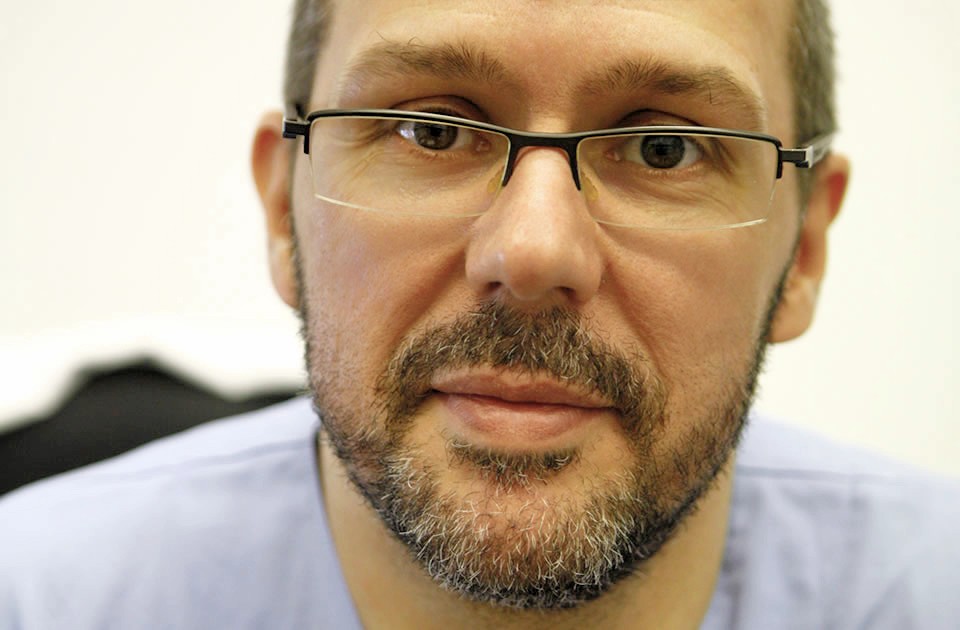Mário Dinis-Ribeiro, principal investigator of one of CINTESIS research lines and professor of the Faculty of Medicine of the University of Porto, is the winner of the BIAL Award in Clinical Medicine 2018, announced today by the Portuguese pharmaceutical company. The award worthing 100 thousand euros distinguishes a study that proposes ways to reduce mortality due to gastric cancer in Portugal.
The award-winning work followed up about 400 patients with malignant or pre-malignant gastric lesions between 2005 and 2017. The approach used allowed the researchers to define new guidelines for the detection and treatment of gastric cancer, one of the deadliest in Portugal, mainly due to late diagnosis and high consequent fatality. “The endoscopies carried out made it possible to remove lesions using minimally invasive access with a complication-free success rate of 80 to 85%. Among the patients included in the study the mortality rate was only 1% and never due to complications related to gastric cancer,” the statement said.
Mário Dinis-Ribeiro, who is also director of the Gastroenterology Service at the IPO-Porto, emphasizes the role of endoscopy in early detection of gastric cancer or lesions leading to cancer, which in many cases replace surgery. “The results obtained allow us to draw two types of conclusions and approaches to prevent and treat gastric cancer. On the one hand, at the prevention level, it is very important to warn the population about risk factors such as tobacco and salt intake. On the other hand, if we want to reduce the prevalence of gastric cancer, we must focus on early treatment of the lesions through high endoscopy and prevent them from developing.”
Therefore, the specialist advises that an endoscopy be done simultaneously with the colonoscopy – an examination that is recommended from the age of 50 for screening for colon and rectal cancer. “When the patient is screened for colon and rectum cancer, they should also undergo endoscopy, thereby synergistically also screening gastric cancer,” he argues, urging “health decision makers to consider gastric adenocarcinoma on the health agenda in Portugal”.
The president of the jury of the BIAL Award in Clinical Medicine 2018, Manuel Sobrinho Simões, defended that “this is a work of great impact, a cancer that has not been considered a problem in Europe, but has a frightening death rate. These results demonstrate the cost-effectiveness of upper gastrointestinal endoscopy in early detection and, consequently, in the treatment of lesions. ”
It should be recalled that approximately one in 60 individuals has gastric cancer in Portugal. It is estimated that, by 2035, there will be an increase of around 30% in the number of new cases and deaths in Europe. Portugal has the same trend, with an increase from the current 3,018 to 4,082 cases and from 2,285 to 3,172 deaths. In less than 20 years, gastric cancer will be the cause of death of 9 Portuguese every day.
Mário Dinis-Ribeiro is principal investigator of the CINTESIS Thematic Line for Clinical and Translational Research, and of the research group iGo – Health Technology Assessment in Gastrointestinal Oncology of the same research unit. He earned his Bachelor and Doctorate Degrees from the Faculty of Medicine of the University of Porto, is specialist in Gastroenterology and head of that Service at the IPO-Porto. In the context of his teaching activity he is a member of the Department of Community Medicine, Health Information and Decision of FMUP, where he coordinates the Master Programme in Health Evidence and Decision, as well as other postgraduate courses. Currently, he is also president elect of the European Society of Gastrointestinal Endoscopy (ESGE) and president of the Portuguese Society of Digestive Endoscopy.

